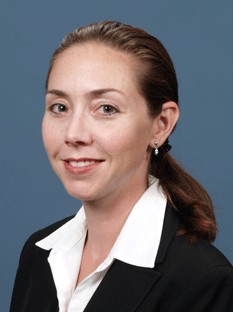Alumni Spotlight: Donna Maddux ‘02
Open gallery

NCVLI staff recently interviewed Lewis & Clark alumna Donna Maddux ’02, Attorney in Charge of the Organized Crime Section of the Criminal Justice Division of the Oregon Department of Justice.
Donna first became involved in crime victims’ rights when she took Professor Doug Beloof’s class, Victims in Criminal Procedure. A year of service in Americorps had confirmed how important helping people would be to her life, and at the time, she wanted to be a prosecutor. Professor Beloof’s class seemed like the perfect combination of her interests.
Following law school, Ms. Maddux was selected by then Attorney General Hardy Myers to participate in the Honors Program with the Oregon Department of Justice, a two-year program in which a small group of the best and brightest recent law school graduates interested in public service gain a wide range of experience working for the Oregon Department of Justice (ODOJ). She spent her first year working on termination of parental rights cases, which she remembers as incredibly sad cases in which too often everyone is a victim.
In her second year with ODOJ, Ms. Maddux rotated to the Criminal Justice Division. She worked on a variety of cases ranging from triple manslaughter to financial crimes to prosecution of tobacco tax crimes. The most surprising thing for Donna about working in this Section was just how much fraud and tax evasion occurs. The work allowed her to learn of an often unrecognized victimization. While business-related tax evasion may seem like a victimless crime, the people hurt are those who are complying with the law, the legitimate business owners who lose business to those who cheat the system. Donna says, “By prosecuting the ones who are cheating, you protect the ones who are playing by the rules.”
Ms. Maddux now works as the Attorney in Charge of the Organized Crime Section, which handles incredibly complex cases. The longest case she has worked on took 3 years of investigation and involved 13 defendants.
When asked about how recent legislative changes have affected her practice. Donna reported that while there have not been any specific legislative developments directly affecting the Organized Crime Section in the past several years, developments in technology have changed the way the Section investigates and proceeds with a case. For example, the State can now use wire taps in complex drug cases, and these advances in technology, coupled with increased Section expertise in its use, have resulted in several successful cases in the metro area in the past year.
Donna says that she has witnessed many changes in Oregon’s victims’ rights over the years. First, thanks to former Attorney General Hardy Myers making victims’ rights a priority, the Crime Victims Services Division is now a stand-alone unit at the Department which ensures the Department maintains a focus on victims’ rights and services. Donna also attributes advances in victims’ rights and services to the great work that the Crime Victims Services Division is doing on the complex needs of victims. She noted that Attorney General John Kroger is continuing to advance victims’ rights and services, ensuring that the Department is there to serve the state’s victims. Finally, Donna noted that Oregon’s new law making victims’ rights enforceable has impacted the kinds of questions her Section receives from district attorneys.
What is Donna’s advice for recent law school graduates, especially those who are interested in victims’ rights-related careers? “The best thing you can do,” says Donna, “is to talk to people who work in many different areas of law, because victims’ rights work can mean a lot of different things.” She also recommends that recent and upcoming graduates stay active and involved with different groups, especially as a volunteer. “Because getting a job is so competitive in the current job market, often volunteering is the best, or even only, way to get one’s foot in the door.”

